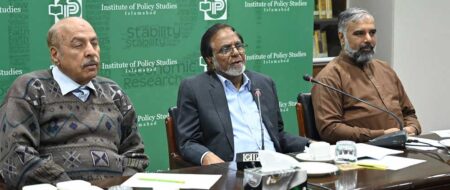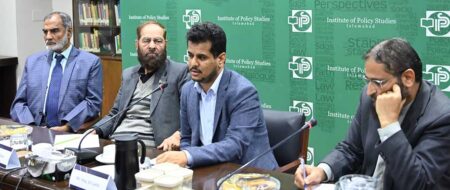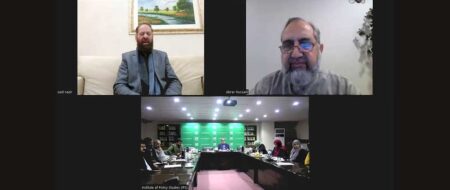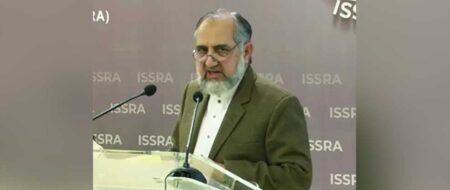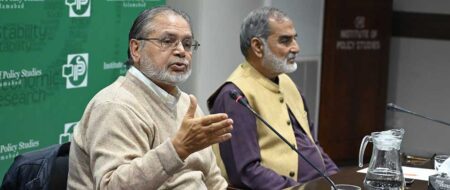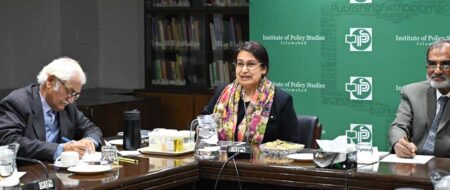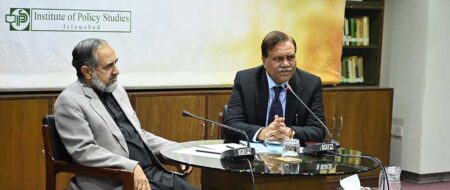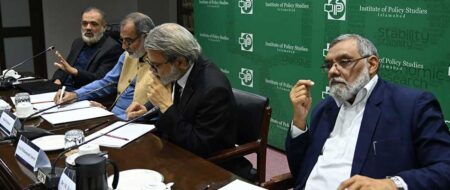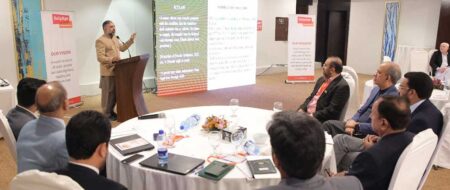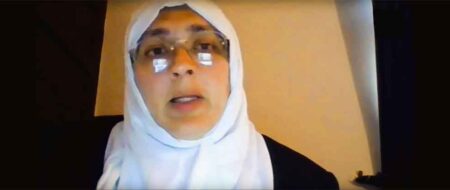‘Poverty of governance’ real hurdle in nation’s progress: Khalid Rahman
“The big powers of developed world could be as sincere towards the cause of economic well-being of the developing countries as a feudal should be for the poor of his fiefdom. There are rarely any examples of countries being successful and coming out of their economic woes following the IMF prescription.”
“The big powers of developed world could be as sincere towards the cause of economic well-being of the developing countries as a feudal should be for the poor of his fiefdom. There are rarely any examples of countries being successful and coming out of their economic woes following the IMF prescription.”
These were the views of Khalid Rahman, Director-General, Institute of Policy Studies (IPS), Islamabad while talking to a delegation of district officials from across Pakistan that visited IPS on 20 April 2012 as part of a training course on ‘sustainability issues in poverty alleviation’ organized by Akhtar Hameed Khan National Centre for Rural Development (AHK-NCRD) in Islamabad.
The delegation was led by Ayaz Akhtar Ansari, Deputy Director, AHK-NCRD and comprised officials from various district departments of Sindh, Punjab, Khyber-Pakhtunkhwa and Azad Jammu & Kashmir.
 |
 |
“Not poverty of resources but the scarcity of the indigenous thought and knowledge and putting that into practice is the major issue the country is faced with. In the contemporary world of knowledge-based economy the dearth of thought and knowledge may not be compensated and would certainly end in poverty in the conventional sense of the word,” Rahman added.
He further said that the real hurdle in the way of the nation’s progress was the ‘poverty of governance’ that has continued to mar the successive regimes in Pakistan after the early and unfortunate departure of Quaid-i-Azam Mohammad Ali Jinnah and Liaquat Ali Khan.
He apprised the course participants of the mission, vision and objectives of IPS and said that it was striving for the last 31 years to sensitize the government and the masses towards finding indigenous solutions of the nation’s socio-economic woes through policy-oriented research and debate.
 |
 |
The DG-IPS said that the interactions of the policy makers and government bodies with think tanks were useful for policy analysis, providing recommendations and viable alternatives and the Institute has been doing this work for over last three decades.
He noted that the country’s ills were closely related with each other and need the holistic and integrated approach to address the issues ranging from bad governance to security and foreign policy.
“The panacea to all our present ills is only present in indigenous means,” he concluded.
Taking part in a general discussion later, the participants shared their observations and raised questions over various aspects of policy debate.



